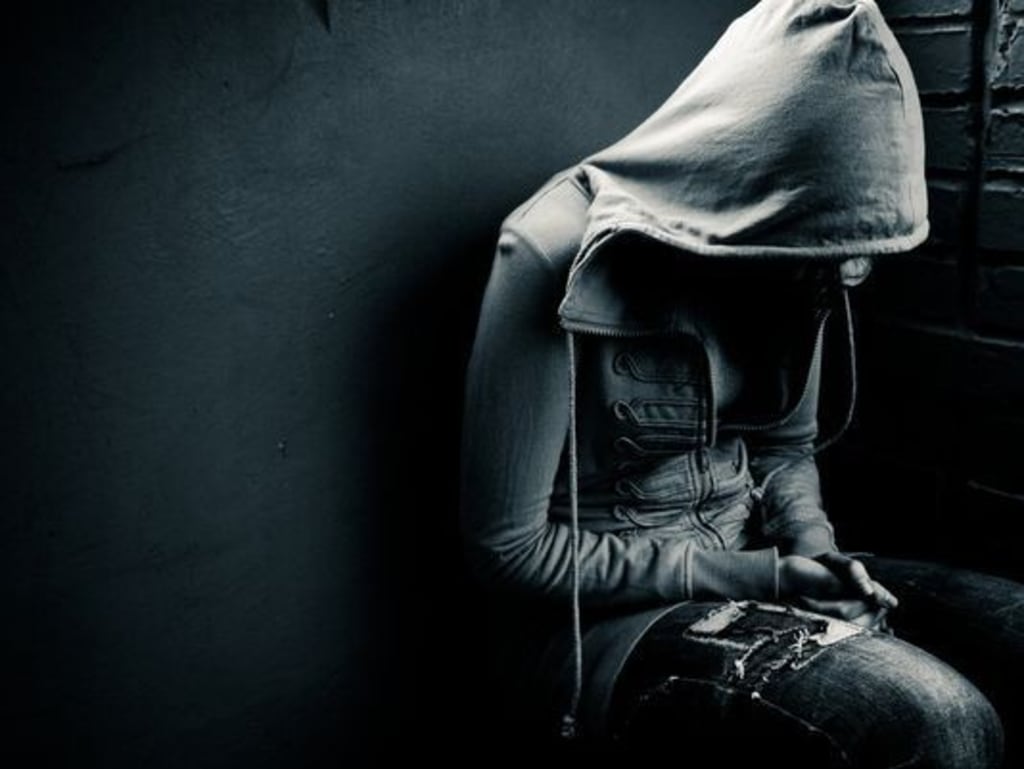Are they talking about me?
Social anxiety disorder/social phobia can be the devil!

Assume that every moment people everywhere are talking about you. The whispers and stares that people give are meant for you. This is how people with social anxiety disorder, or social phobia, feel whenever they are vulnerable and exposed to others. It is a terrible ordeal for those who suffer from this because it interrupts and restrains them for functioning properly in their daily lives. This raises a question of how something like this comes about. What are some possible causes of this and how can one overcome this? There are many apparent studies done that used social and physiological factors as possible causes of social phobia.
To begin with, social phobia is an anxiety disorder that prohibits one to socialize with others due to fear of judgment and extreme level of self consciousness. People with this disorder have a bizarre fear of being watched and scrutinized by others. This is exacerbated when they lack social skills in social situations. This causes anxiety which for some can lead to panic attacks because they are constantly in distress that people are judging them. Some even withdraw themselves from social situations completely so they don’t have to face the anxiety. Bruce H. Hinrichs (2004) states people with anxiety worry, feel stressed, and ruminate, which means to go over things repeatedly in their minds (340). They are aware that their fear is unreasonable but they are incapable of overcoming it. Even if they try to confront their fears, the fear still persists in the back of their minds that always seem to overtake them. This deters them to do even the simplest of chores such as going to stores, talking to people, or walking outside because they fear that people are looking at them from their houses. Not only is socializing difficult for them, but also eating or drinking in public because they believe people are watching and examining them.
According to the Social Phobia/Social Anxiety Association, social phobia affects fifteen million American adults of men and women equally. Compared to other psychological orders, this is the mostly misdiagnosed about 90% of the time by doctors, mental health professionals, therapists, etc. They are misdiagnosed with schizophrenia, manic depressive, clinically depressed, and other personality disorders. These disorders are nothing like social phobia. Unlike schizophrenia, social phobia sufferers don’t hallucinate about mysterious voices speaking to them or delude themselves that their pets are trying to kill them. Instead, they suffer from irrational fear of peer judgment. People with this disorder are difficult to determine because they are either at home away from people or hide their anxiety very well so they won’t be “gawked” at by others. They would have to hide it because they fear being the center of attention. They would do everything they can to not draw attention to themselves.
Moreover, social anxiety symptoms are blushing, difficulty talking, nausea, incessant sweating, trembling, etc (Berger, 2010). This may seem similar to shyness but it isn’t because “shy people still can participate in social functions”. Social phobes share the common fears of attending any sort of social function, meeting new people, speaking in public and even using public restrooms. Additionally, social phobes seem to have the possible luck in a world where most people are social creatures. Being in a world where extroverted people are abundant, could make lives difficult for those who aren’t. This appears so because extroverted people enjoy interaction with others and the small percent of “others” could be interacting with the social phobes.
The causes are not very clearly because it can be either social, and or physiological factors or all the factors combined that can cause social phobia. The generic causes are known to derive from environment and heredity. According to the Mayo Clinic Foundation, “Anxiety disorders are tending to run in families. However, it isn’t clear how much of this is due to genetics… Natural chemicals in your body may play a role in social anxiety disorder. Children who experience teasing, bullying, rejection, ridicule or humiliation may be prone to this disorder.” Consequently, there isn’t exactly specificity which makes this more complicated to understand its causes. It seems all factors combine in whimsical way to form anxiety in a person. One has to take all factors in hand to truly understand anxiety in people.
A person’s physiology also has a lot to do with the conception of one’s anxiety. There has been research done by Jerome Kagan, Ph.D. at Harvard University that showed about 10-15% of children from birth to adolescence were irritable infants that made them shy and fearful as toddlers and stay reserved and introverted in their primary school years (Wardy, 2002). This shows that anxiety persists in an individual as they grow older. This actually suggests that an infant can be born with irritability and fear which pertains to the growth in anxiety as they mature. Additionally, toddlers are at age of learning and understanding their milieu and if certain preventive cautions are taken to change their irritability and fear early on, then it stays with them as they grow mature. Kagan’s research also suggests that “physiological trait in certain children: they had a higher resting rate, which rose higher when they were stressed” (Wardy, 2002). This explicates that some children stay stressed longer and take a slower time to calm down which emphasizes their anxiety even more. Consequently, according to Clinical Psychology review, “children with social phobia were more likely…to have parents with social phobia…” (Rapee & Spence 744). This shows that family members have a high chance of passing their phobias on to their children. This is plainly explicable because the parents are the children’s environment and genetics so it’s obvious they extract it from them. The children see how their parents act and they “absorb” what they see. Also, twin studies in 7 year old pairs show that there is a strong genetic influence on social phobia (745). This implies that identicalness in family members, such as the twins, have a great chance of being inflicted with social phobia.
Intermittently, social factors have an equally important role in understanding social anxiety. Children’s environments make them the people they are. If the environment is sanely pristine, then the children have a higher outcome of dealing less with anxiety. Negative events in life can greatly impact a person’s psyche that can possibly do great damage to their social well being. Children that come from a disheveled family milieu have a high chance of being reserved or overcome with fear. However, this is probably not true for all children because children are all inherently different. Some children can rise above their tumultuous background and some can’t. This depends mostly on them and how they handle situations emotionally or how they were taught to handle emotional things. This pertains to family because since conception all a child knows his environment which is his family. Children learn everything they know from their inner environment and their outer environment. Inner environment is the family members and the close knit group of friends that surrounds the child. The outer environment could possibly be daycare, the park, and school-anything that doesn’t necessarily involve the inner environment. However, this all depends on the family’s and children circumstances that they are in. The environments can be different for some such as foster homes, orphanages, welfare shelters, etc.
Certain parenting roles can also impact social phobia in children because this phobia really starts from the beginning. “Parenting traits such as over control, lack of warmth or rejection, and over protection are known to be associated with…this disorder” (Brook & Schmidt 2008). This seems obvious because their should be moderation and equal amount of any sort of emotion that is exposed to children. Too little or too much of any emotion can greatly affect a child. For example, when a child endures too much rejection, then they don’t endure enough acceptances and this causes imbalance in a child’s behavior. Rejection constitutes as a negative trait and when a child is more exposed to the negative trait, and then it will be the only emotion they would be familiar with. This would lead the child to be socially withdrawn and he would think the outer environment will only behave the same way. Even, over control can prohibit the child from “learning things independently and likely to be fearful” and therefore creating anxiety (Brook and Schmidt 2008).
Due to negative environmental factors and incompetent parenting skills, social phobia worsens in a person. When this worsens, it can turn into a depression. This appears so because the lack of social interaction, isolation and peer judgment can make them feel unwanted and feel lonely and incapable of having social relationships. They could feel completely helpless to their condition and fall into it. Depression is known to be caused due to stressful events such as domestic problems at home, social isolation, death etc. Social phobia and depression are closely related due to environmental and emotional problems such as social isolation and unhappy childhood. Social phobia should be treated quickly as possible before it turns into depression.
Treatment for social phobia is to slowly open themselves to social situations and ameliorate their social skills. Anti anxiety medication and anti depressant medication can also help to treat this but it won’t permanently cure it. Cognitive behavioral therapy can help to alter the causes of the condition and could help replace panic causing thoughts. Exposure therapy could help to treat phobia by exposing their fear to people and guide them to overcome it (Brinkerhoff 80-85).
All in all, social and physiological factors play a great role in understanding the causes of social phobia. Since social phobia has been known to begin in infancy, parents should be self aware as to how they act around their children. They should take great precaution in their verbal and physical actions. There is no way to alter a person’s physiology but social measurements can be taken to change the way he grows up. Gradual treatment can help social phobes overcome their fear of peer judgment and their own self consciousness. There isn’t a permanent cure but small steps can help to reenter society with confidence.






Comments
There are no comments for this story
Be the first to respond and start the conversation.